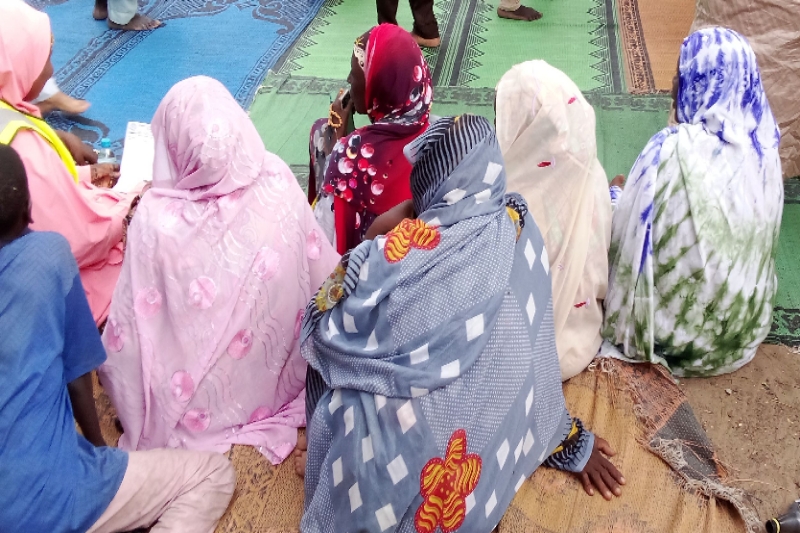Therapists are helping thousands of victims of the 14-year conflict in Borno State to deal with their mental disorders so that they can start living life anew.
The extreme violence experienced during the 14-year conflict in Nigeria’s northeast – particularly in Borno State, the epicentre of the insurgency – has affected thousands of people leaving many with dire mental disorders.
Even today, those with mental illnesses are often considered to be mad, possessed by demons or under the spell of witchcraft.
But, in reality, living through the years of terror caused by the insurgency – seeing loved ones killed, maimed and raped; surviving in a state of constant fear; having men, women and children abducted; losing property worth millions of naira; and having to flee their homes to escape the hellish, deadly and persistent attacks – it would be utterly incredible to think this would not affect the minds of many people.
On Tuesday, October 10, the United Nations and the World Health Organisation commemorated World Mental Health Day to raise awareness of mental health issues around the world and to mobilise efforts in support of mental health.
The day provides an opportunity for all stakeholders working on mental health issues to talk about what more needs to be done to make mental health care a reality for people worldwide.
This year’s theme was “Mental health is a universal human right”.
RNI spoke to people, all victims in some way or another of the insurgency, who have suffered for years from severe depression, horrific anxiety and post-traumatic stress disorder (PTSD), among other mental disorders.
Many said they were only now beginning to come to terms with their mental disorders by getting much-needed psychosocial support which was enabling them to get over their grisly and frightful past and look forward to a sound and happy future.
Batul Bulama has suffered from severe mental problems for many years. Her mental illness began after insurgents abducted her two young brothers 10 years ago in the Tashan Bama area of Maiduguri. One of her brothers was aged 30, the other was 35.
“Their abduction not only affected me. It caused the death of our father six days after he heard of the abductions.
“It affected all of us but I became mentally ill. People thought I was suffering from a demon attack and others believed I was under the spell of witchcraft. They thought I was mad and should be locked away,” she said.
“It was only when I got proper counselling, psychotherapy, psychosocial support and medical treatment from specialists that I realised I had been suffering from a mental illness for all these years.
“I never thought I would recover. I had been battling to survive for almost 10 years. I felt totally disconnected from reality. I could not sleep and spent every hour of every day recalling what had happened. I could not get over it.”
Batul said she first saw some light at the end of the very dark tunnel when therapists from humanitarian agencies examined her and started to treat her mental condition.
“They prescribed medication and provided useful strategies on how I could go on with my new life by forgetting all the traumatic experiences that had happened to me in the past. It took hours of therapy but it was worth it.”
Modu Mohammed told RNI that he had become mentally ill after insurgents destroyed his property worth millions of naira.
“From being an extremely rich man, I suddenly became very poor. I could not even afford to look after my family. I travelled all over – including Libya, the Niger Republic and Cameroon – in search of greener pastures. But it was all in vain. My reputation of being a rich man disintegrated. I became extremely depressed and anxious by all the misfortune I had witnessed for years.
“It was only when I sought help for my mental health from specialists that I began to recover. I underwent psychological tests and received psychosocial and mental health support, as well as counselling. Now I feel I’m on the road to recovery again. I have started a tailoring business and I am once again earning a living. I am so grateful because it was not just me who suffered while I was mentally ill, it was my family too.”
Comfort Dauda, a mental health and psychosocial support (MHPSS) field officer of the International Committee of Red Cross (ICRC) in Borno State, said mental health specialists were continuing to provide psychosocial support, trauma counselling and psychotherapy for the victims of mental illness.
“It is not uncommon for ordinary people living in armed conflict zones to suffer from mental disorders. I have come across it many times, not only in Borno State but also in the whole northeast region.”
She said more than 10,000 victims of mental illness had received support – which included counselling, psychosocial, psychotherapy and medical treatment – since the inception of MHPSS programme.
She said ICRC partnered with the Borno State psychiatric hospitals, the ministry of health and the ministry of women affairs and development to train nurses, social workers and other health workers to build their capacity to enable them to give adequate support to the victims of mental illness caused by armed conflicts.
“We also offer support for victims of sexual violence – mostly women, girls and boys – who also often need help with mental disorders,” she said.
“Plans are under way by the ICRC to offer psychosocial support services and medical treatment to the surrendered and repentant insurgents in the Hajj camp, one of the biggest rehabilitation centres for penitent insurgents in Borno State. They also suffer from psychological and mental disorders. It can be extremely hard to live a normal life again after having been indoctrinated by vicious insurgents for years.”
SHETTIMA LAWAN MONGUNO








